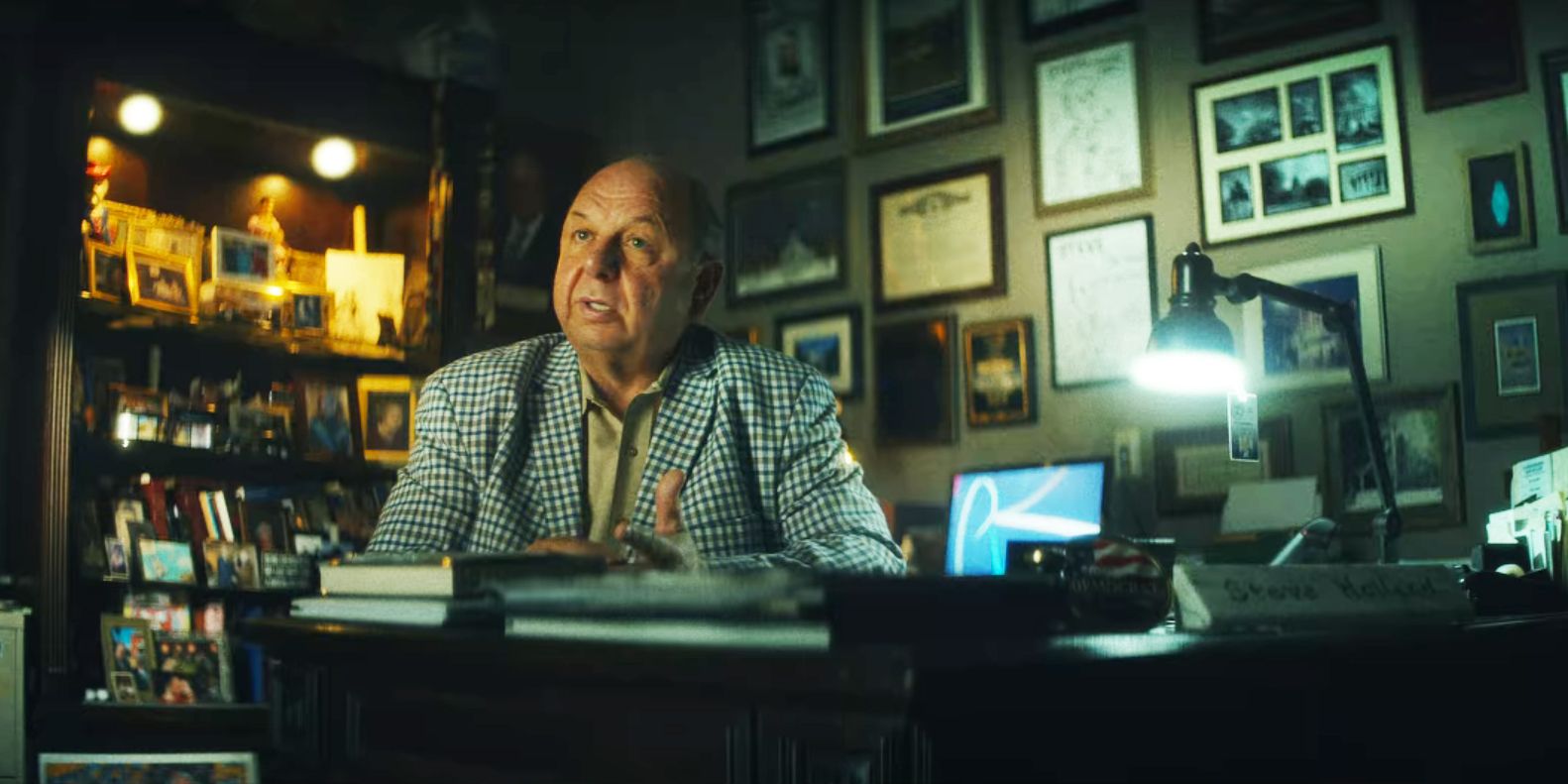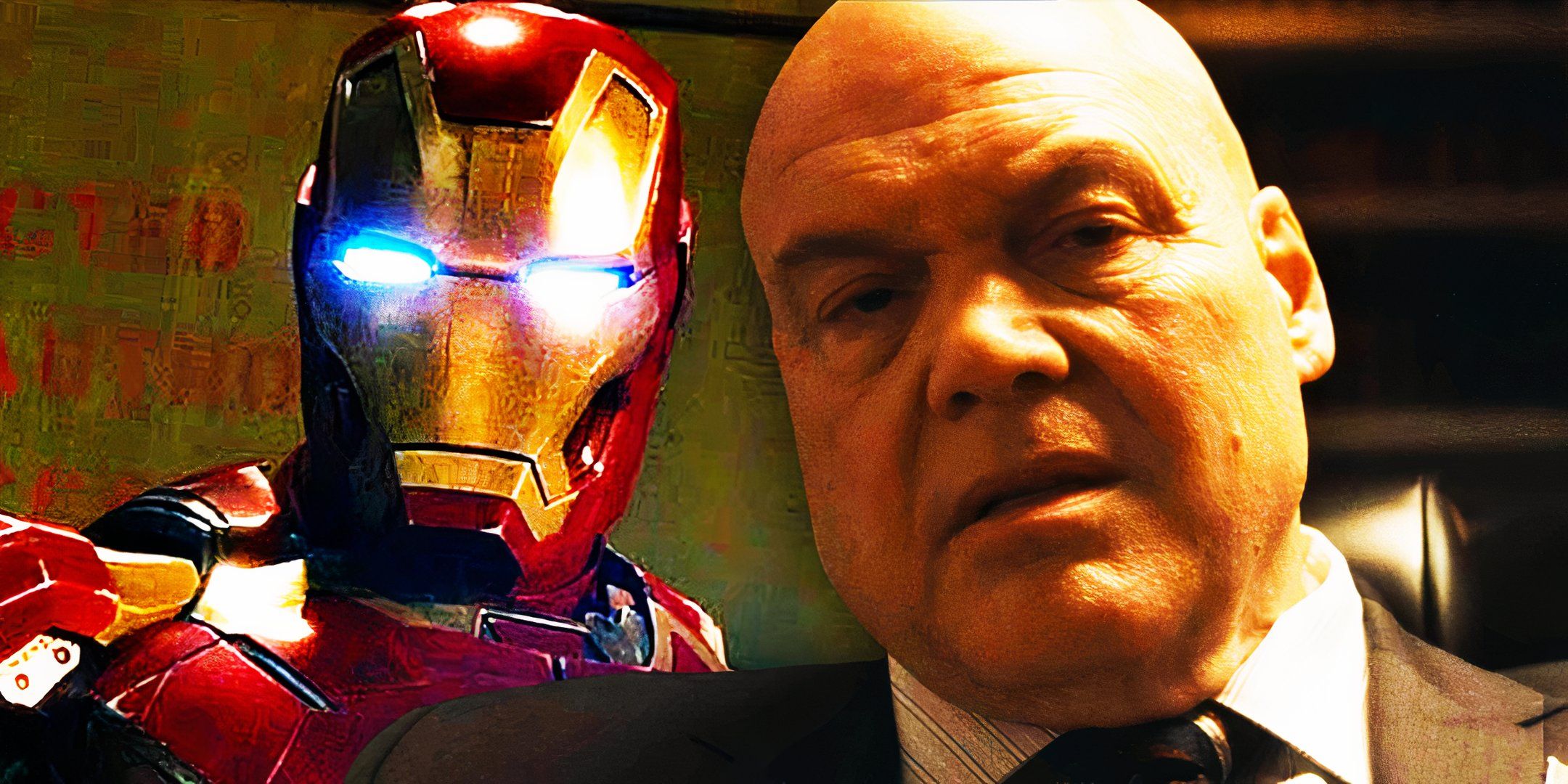The Kings Of Tupelo: Who Steve Holland Is & Why Curtis Believes He's Involved In The Organ Conspiracy
Warning: this article contains spoilers for The Kings of Tupelo.
Netflix's documentary series The Kings of Tupelo brings to light some strange conspiracy theories that began in Elvis's birthplace in Tupelo, Mississippi but eventually made their way to the White House. The Kings of Tupelo focuses on Kevin Curtis, beginning with his career as an Elvis impersonator and moving into the experiences that led him to become a conspiracy theorist and being framed for attempting to poison former President Barack Obama. The Kings of Tupelo includes several competing claims about the true story, stemming from the numerous individuals interviewed and their intertwined histories.
The Kings of Tupelo is filled with colorful characters, one of whom is Steve Holland, a crucial figure in multiple chapters of the story. While Holland is not the primary focus of the docuseries, his commentary is important because he provides another point of view on The Kings of Tupelo's most shocking moments. It can often be difficult to determine what happened and when in The Kings of Tupelo, since many of the people interviewed contradict each other or have clear feuds in their pasts. However, taking a closer look at Steve Holland, can help explain who he is and how he became connected to the organ conspiracy.
Steve Holland Was A Politician In The Mississippi House of Representatives & Funeral Home Director
He Was A Fairly Well Known Community Member
Close
Steve Holland is presented in The Kings of Tupelo as a local politician who was a member of the Mississippi House of Representatives. He is also the son of a judge, Sadie Holland, who had previous run-ins with Kevin Curtis. Holland is introduced to The Kings of Tupelo's story because Kevin Curtis had reached out to him as a politician to bring more attention to the illegal sale of body parts that Curtis had become convinced was occurring in Tupelo.
The docuseries highlights how Holland helped pass a bill in Mississippi that was related to organ donation, leading Holland himself to point out that it would be strange for him to begin covering up the sale of body parts when he had been such a supporter of the importance of organ donation in medical centers.
Alongside his political position, Holland also served as the director of several funeral homes that his family owned. The docuseries highlights how Holland helped pass a bill in Mississippi that was related to organ donation, leading Holland himself to point out that it would be strange for him to begin covering up the sale of body parts when he had been such a supporter of the importance of organ donation in medical centers. Holland, somewhat humorously, also remarks on his talent at embalming, adding to the story's strangeness.
Kevin Curtis Became Convinced Holland Was Involved In The Organ Selling Conspiracy
Curtis Was Suspicious Of Holland's Funeral Homes
After Kevin Curtis claimed he saw a severed head in a hospital freezer, Curtis became invested in exposing the people behind the illegal sale of body parts happening around the country. However, the medical center where he worked denied this claim, and Curtis was subsequently fired. Following these initial events, the Elvis impersonator began writing his book "Missing Pieces" and reaching out to Mississippi politicians such as Holland and Senator Roger Wicker in an attempt to spread his information. However, he became suspicious upon learning of Holland's funeral homes.
Related Did Priscilla Presley Really Leave Elvis For A Karate Instructor? The Kings Of Tupelo Parallel Explained In Netflix's docuseries The Kings Of Tupelo, Kevin Curtis mentions Priscilla Presley left Elvis for her karate instructor, but is this true?
After learning that Holland was the director of several funeral homes as well as being a politician, Kevin Curtis began to suspect that Holland was somehow involved in the cover-up of the body part selling conspiracy. Curtis saw Holland's positions as the perfect way to both make money from the conspiracy and be able to cover it up afterward. Needless to say, Holland has vehemently denied these allegations. Additionally, despite some of Curtis's claims having been proven correct in other states, the documentary does not point to any evidence that organs were being sold in Tupelo.
Steve Holland Was Also Connected To James Everett Dutschke In Kings Of Tupelo's Ricin Case
They Had Run Against Each Other In The Mississippi House Of Representatives
Close
Beyond his minor interactions with and disbelief of Kevin Curtis's conspiracies, The Kings of Tupelo also brings to light Holland's interactions with a man named James Everett Dutschke. Initially, just another local man and minor politician, Everett Dutschke, became nationally known for sending ricin letters to several politicians, including then-President Barack Obama. This event connected the two men as Holland's mother, Judge Sadie Holland, was also one of Dutschke's intended victims, though luckily she was not hurt.
Dutschke initially attempted to frame Kevin Curtis for the ricin letters because the two men had several disagreements in the past, including over Curtis's conspiracy beliefs, Curtis's ex-wife, and claims by each man that the other was stalking him, though the FBI eventually realized Curtis's innocence.
Before this event, Holland and Dutschke had also interacted while running against each other in 2007 for a position in the Mississippi House of Representatives, with Holland winning and maintaining his seat. Dutschke ran against Holland because he saw Holland as being corrupt or a bad leader. However, the docuseries portrays Holland as being fairly well-liked in Tupelo, aside from Curtis and Dutschke's opinions, and from a family that was well-known. Like several events in The Kings of Tupelo, Holland and Dutschke's connection is almost too shocking and unusual to be true.











COMMENTS